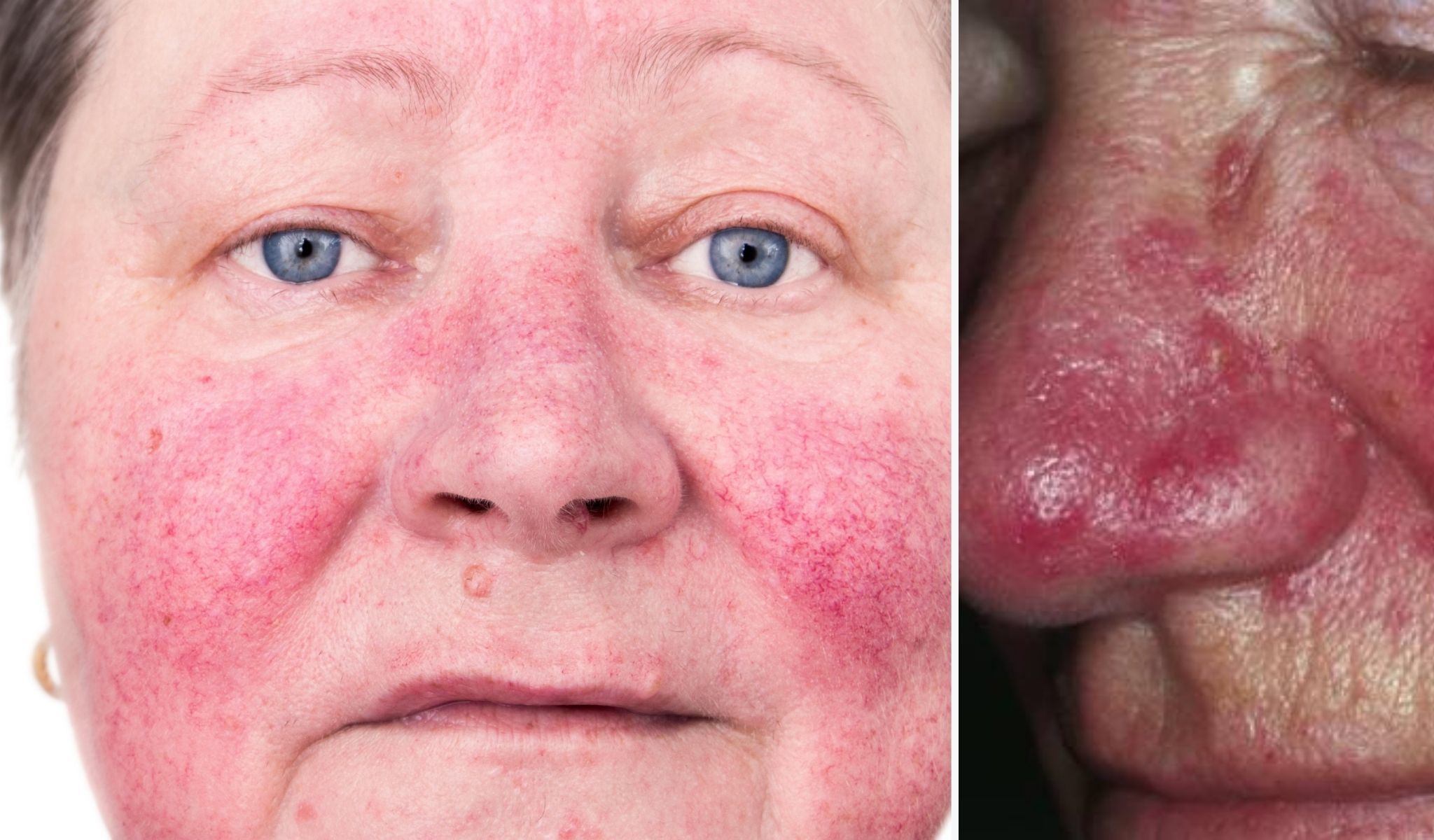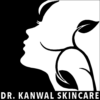ROSACEA

What is Rosacea?
Rosacea is a chronic skin condition that primarily affects the face, causing redness, flushing, visible blood vessels, and in some cases, pimples or pustules. It tends to develop gradually and often appears in adults between the ages of 30 and 50.
Symptoms of Rosacea
Rosacea is a chronic skin condition that primarily affects the face and can manifest with a variety of symptoms. These symptoms can vary in severity and may come and go over time. Common symptoms of rosacea include:
- Facial Redness (Erythema): Persistent redness, often in the central part of the face, including the forehead, nose, cheeks, and chin.
- Flushing: Frequent episodes of flushing or blushing, which can be triggered by various factors such as heat, spicy foods, alcohol, or emotional stress.
- Visible Blood Vessels (Telangiectasia): Small, visible blood vessels on the face, often referred to as spider veins or broken capillaries.
- Pimples and Pustules: In some cases, rosacea can lead to red, swollen bumps or pustules that resemble acne. This is more common in a subtype called papulopustular rosacea.
- Thickened Skin: Over time, the skin may thicken and develop a bumpy texture, especially on the nose (a condition known as rhinophyma). This is more common in men.
Management of Rosacea
There is no cure for rosacea, but it can be successfully managed and controlled with a clear improvement in appearance of the skin. Treatment options include:
- Topical Medications: Dermatologists often prescribe topical creams or gels containing ingredients like metronidazole, azelaic acid, or ivermectin to reduce redness and inflammation.
- Oral Medications: For more severe cases, oral antibiotics (e.g., doxycycline) may be prescribed to control inflammation and reduce the appearance of papules and pustules.
- Laser and Light Therapies: Procedures such as laser therapy or intense pulsed light (IPL) can help reduce visible blood vessels and redness.
- Eye Drops: If you have ocular rosacea, your eye doctor may recommend lubricating eye drops and other treatments to relieve eye irritation.
- Skincare and Sun Protection: Gentle skincare routines and the use of fragrance-free, hypoallergenic products can help manage symptoms. Sunscreen is essential to protect the skin from UV radiation, which can exacerbate Rosacea.
Precautions and lifestyle tips to manage Rosacea
While there is no guaranteed way to prevent rosacea, you can take certain measures to reduce your risk of developing this chronic skin condition or minimize its severity if you are already diagnosed. Here are some preventive measures and lifestyle tips to consider:
- Identify and Avoid Triggers:
- Pay attention to factors that trigger rosacea flare-ups in your case, such as spicy foods, hot beverages, alcohol, sun exposure, extreme temperatures, and emotional stress.
- Keep a diary to track your symptoms and potential triggers so you can make lifestyle adjustments accordingly.
- Protect Your Skin from the Sun:
- Always use sunscreen with a broad-spectrum SPF of 30 or higher. Apply it generously to your face and other exposed areas of skin, and reapply every two hours when outdoors.
- Wear protective clothing, such as wide-brimmed hats, sunglasses, and long sleeves, to shield your skin from harmful UV rays.
- Gentle Skincare Practices:
- Use mild, non-irritating skincare products that are fragrance-free and formulated for sensitive skin.
- Avoid harsh exfoliants, rough scrubbing, and abrasive cleansers that can irritate your skin.
- Moisturize Regularly:
- Keep your skin well-hydrated with a gentle, hypoallergenic moisturizer.
- Opt for moisturizers that contain ingredients like ceramides or hyaluronic acid, which help maintain the skin’s natural barrier.
- Temperature Control:
- Stay in a comfortably cool environment, and use fans or air conditioning during hot weather to prevent overheating.
- In cold weather, protect your face from cold winds by wearing a scarf or mask.
- Manage Stress:
- Practice stress-reduction techniques, such as meditation, deep breathing exercises, yoga, or progressive muscle relaxation.
- Manage stress effectively as it can trigger or exacerbate rosacea symptoms.
If you suspect you may have Rosacea or if you experience persistent facial redness or other symptoms, consult a dermatologist for a proper diagnosis and guidance on treatment options.
Remember that Rosacea varies from person to person, so the treatment approach may differ. It’s essential to work closely with a Dermatologist for personalized advice and treatment options tailored to your specific condition.
